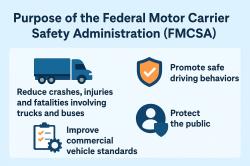What are the features of a local government?
Local governments, also known as municipal or local authorities, vary in structure and functions from one country to another. However, they share several key features and characteristics that define their roles and responsibilities. Here are the key features of a local government:
Local Jurisdiction: Local governments have a specific geographical jurisdiction, which can range from a city, town, or county to smaller administrative units such as municipalities, boroughs, or townships. They are responsible for governing and providing services within their defined boundaries.
Autonomy: Local governments have a degree of administrative and fiscal autonomy. While they are subject to national or regional laws and regulations, they have some authority to make decisions and set policies that are relevant to their local communities.
Elected Representatives: Local governments are typically led by elected officials, such as mayors, council members, commissioners, or aldermen. These representatives are chosen by local residents through democratic processes like elections.
Local Legislation: Local governments often have the power to enact and enforce local ordinances, bylaws, and regulations that address issues specific to their communities. These laws must be consistent with higher-level laws and constitutions.
Service Provision: Local governments are responsible for providing essential public services within their jurisdiction. These services may include education, public safety (police and fire departments), sanitation, public transportation, zoning and land use planning, parks and recreation, and more.
Local Taxation: They have the authority to collect taxes, fees, and other revenue sources from local residents and businesses to fund public services and infrastructure projects. This revenue generation is an essential part of their financial autonomy.
Public Participation: Local governments often engage in public participation efforts to involve residents in decision-making processes. This can include public hearings, town hall meetings, advisory boards, and citizen input on policies and projects.
Inter-Governmental Relations: Local governments may collaborate with higher levels of government (state or national) on various matters, including funding, regulatory compliance, and emergency response coordination.
Infrastructure and Development: They are responsible for infrastructure development, maintenance, and land use planning within their jurisdiction. This includes managing roads, utilities, housing, and public facilities.
Community Development: Local governments often promote community development and economic growth initiatives to enhance the well-being of their residents. This may involve supporting local businesses, attracting investments, and revitalizing neighborhoods.
Local Accountability: Local governments are accountable to their constituents, and elected officials can be held responsible for their decisions and actions through elections and other democratic processes.
Decentralization: In many countries, local governments are part of a broader system of decentralization, which seeks to distribute governance and decision-making authority more evenly across various administrative levels.
Varied Structures: Local government structures can vary widely from place to place. Some areas may have city councils, while others have townships, villages, or county governments. The specific structure depends on local laws and traditions.
It's important to note that the exact roles, responsibilities, and powers of local governments can differ significantly between countries and regions. Local government systems are shaped by historical, cultural, and political factors, and they adapt to the unique needs of their communities.
Features of Local Government: Understanding Its Essential Characteristics
Local government is the level of government closest to the people. It is responsible for providing essential services to the community, such as education, public safety, infrastructure, and social services. Local governments are also responsible for regulating and zoning land, issuing permits, and licensing businesses.
Some of the essential characteristics of local government include:
- Proximity to the people: Local governments are typically small and geographically concentrated, which allows them to be more responsive to the needs of the community.
- Autonomy: Local governments have a degree of autonomy from state and federal governments. This allows them to tailor their policies and programs to the specific needs of their community.
- Accountability: Local governments are accountable to the people they serve. This accountability is typically ensured through elections, public hearings, and other forms of civic engagement.
The Local Governance Model: Key Features and Components
The local governance model is based on the principle of subsidiarity, which holds that decisions should be made at the lowest level of government possible. This ensures that decisions are made by the people most affected by those decisions.
The local governance model is composed of a number of key features and components, including:
- Elected officials: Local governments are typically led by elected officials, such as mayors, council members, and school board members. These elected officials are responsible for setting the overall direction of the local government and for making decisions about the allocation of resources.
- Professional staff: Local governments also employ a number of professional staff to carry out the day-to-day operations of the government. This staff may include police officers, firefighters, teachers, social workers, and other skilled professionals.
- Public participation: Local governments rely on public participation to ensure that their decisions are responsive to the needs of the community. This participation can take many forms, such as attending public hearings, contacting elected officials, and voting in elections.
Local Government in Focus: Examining Its Distinctive Attributes
Local government plays a vital role in our society. It is responsible for providing essential services to the community and for regulating and zoning land. Local governments also play an important role in promoting economic development and social well-being.
Here are some of the distinctive attributes of local government:
- Diversity: Local governments are diverse in terms of their size, structure, and the services they provide. This diversity reflects the diversity of the communities they serve.
- Flexibility: Local governments are relatively flexible and can adapt their policies and programs to meet the changing needs of their communities.
- Responsiveness: Local governments are typically more responsive to the needs of their communities than state and federal governments. This is because they are closer to the people and more accountable to them.
Local government is an essential part of our democracy. It is responsible for providing the services we rely on and for ensuring that our voices are heard.











